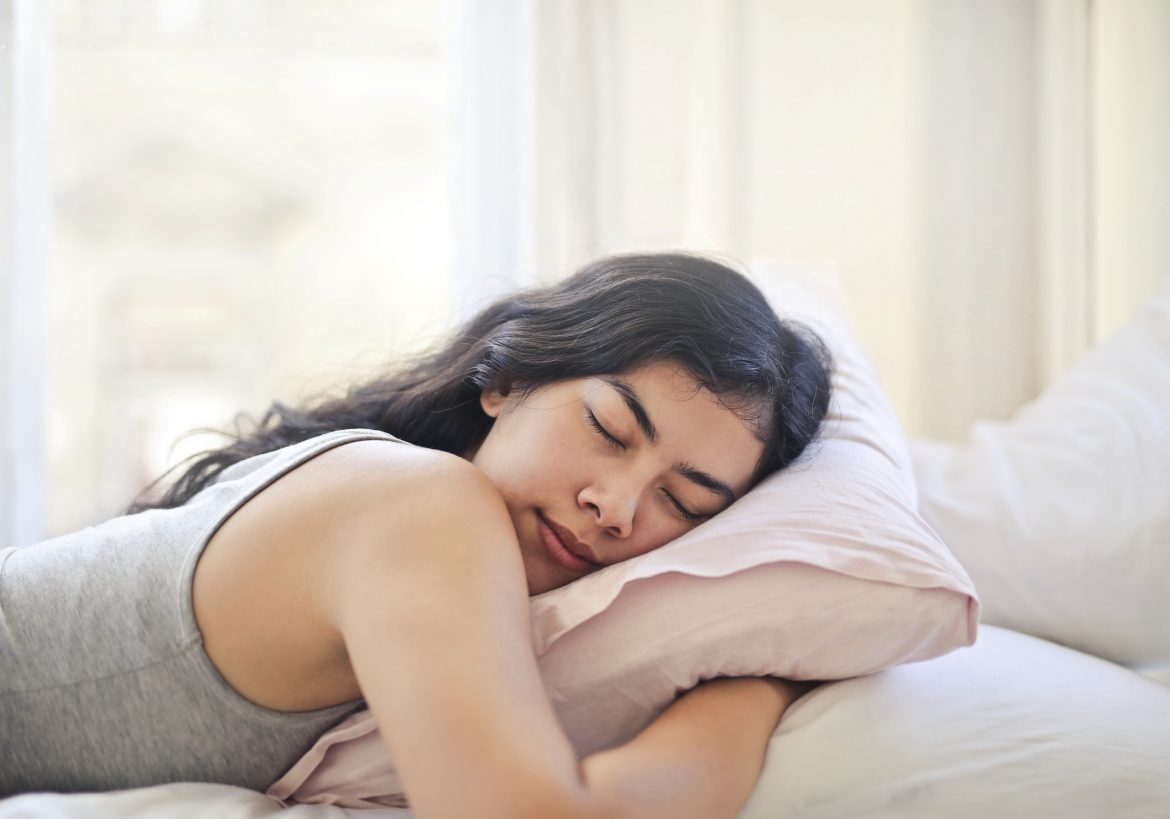From insomnia to night sweats, we answer common sleep questions.
Our quality of sleep can have a huge impact on how we function on a daily basis; from how we manage stress, to our productivity levels. But what are the biggest problems affecting us when it comes to getting that all-important eight hours of sleep? We uncovered your most googled sleep questions and asked our experts what might be causing your restless nights and how you can fix them, fast.
1. Symptoms of sleep deprivation?
‘A good night’s sleep is extremely important for our health and well-being. If you’ve had a bad night’s sleep and are suffering from sleep deprivation, you’ll tend to feel less focused and fatigued the following day,’ says sleep expert Dr Nerina Ramlakhan. ‘Other symptoms can include depression, a short temper and increasing feelings of hunger.’
2. How does menopause affect my sleep?
Sleep disorders affect 39–47% of perimenopausal women and 35–60% of postmenopausal women*. Why? ‘When women go through menopause, it’s because their ovaries stop producing oestrogen and progesterone, affecting a range of factors such as mood and sleep’, says Dr Ramlakhan. ‘Symptoms vary, but the main causes of sleep deprivation are hot flushes, sleep apnoea or insomnia.’
3. What causes night sweats?
‘Hot flushes during menopause are one of the most common causes of night sweats,’ says nutrition expert Rob Hobson. ‘Certain lifestyle factors may exacerbate night sweats, including alcohol and smoking.’ Other reasons include anxiety or medications, such as antidepressants or steroids. Night sweats usually go away on their own, but see Dr Ramlakhan’s tips, right, for staying cool.
4. What sleep position helps with neck pain?
‘If you experience neck pain, try to sleep on your back or your side, as sleeping on your front adds extra pressure to your spine,’ says Dr Ramlakhan. ‘Sleeping on your back will position the weight evenly along the spine.’ Certain pillows can help maintain a natural spinal alignment.
5. How do you sleep in the heat?
‘In order to sleep well, there needs to be a fractional temperature difference between our body and brain – in other words, a warm body and a cool head,’ says Dr Ramlakhan. Try these tips to stay cool:
✣ Take a cold or lukewarm shower before getting in bed. ✣ Swap bedding for light sheets and duvet.
✣ Stop your bedroom from overheating during the day by keeping curtains closed.
✣ Stay well hydrated during the day.✣Useafanandplaceitsothe air is blowing over a tray of ice – this will cool the room down as the ice begins to melt.
6. What position helps the lower back?
Ensuring you keep a proper alignment of your spine is the most important. If lying flat on your back is uncomfortable, try shifting over to your side in a foetal position,’ says Dr Ramlakhan. ‘Sleeping this way opens the spaces between your vertebrae. But do try to switch sides every night, so you’re not putting too much pressure on one side of your body.’
7. What are the warning signs of sleep apnoea?
‘Sleep apnoea is a serious sleep disorder,’ says Dr Ramlakhan. ‘Common symptoms include loud snoring, irregular stop-and- start breathing or choking noises, waking up regularly, and lack of energy when you are awake.’ If you experience these, see your GP. They may refer you to a sleep clinic, where you may be given devices to wear overnight so your breathing and heartbeat can be monitored.
8. Can melatonin solve sleeping problems?
The hormone melatonin is at its highest at night. It helps control our sleep cycle, allowing us to drift off in the evening and wake up in the morning when levels decrease again. Our melatonin levels naturally decrease as we age, though. They can also reduce as a result of certain diseases, such as cancer and type 2 diabetes. However, melatonin is available by prescription – mainly to treat sleep problems in adults aged 55 and over. ‘Research suggests that melatonin supplements might be helpful in solving sleeping problems such as delayed sleep phase one,’ says Rob. This is the first of our four sleep stages, and it lasts from one to five minutes. The typical eight hours of sleep will go through several cycles of these sleep stages. The main concern with taking melatonin supplements is the risk of overdose and dependency. ‘I have worked with people who are good sleepers, but have taken melatonin to overcome jet lag,’ says sleep expert James Wilson. ‘Their bodies get used to the overdose and, when the supplement is removed, they start to struggle to sleep.’ Although melatonin is naturally occurring in the body, taking too much can disrupt your sleep cycle. There isn’t a recommended dosage for adults,but studies tend to use between 1–10 mg. It’s believed more than 30 mg may be harmful. ‘Try to change sleeping behaviours before turning to supplements,’ says James.
ALSO SEE FORTY WINKS: A NIGHTTIME TEA FOR BETTER SLEEP

